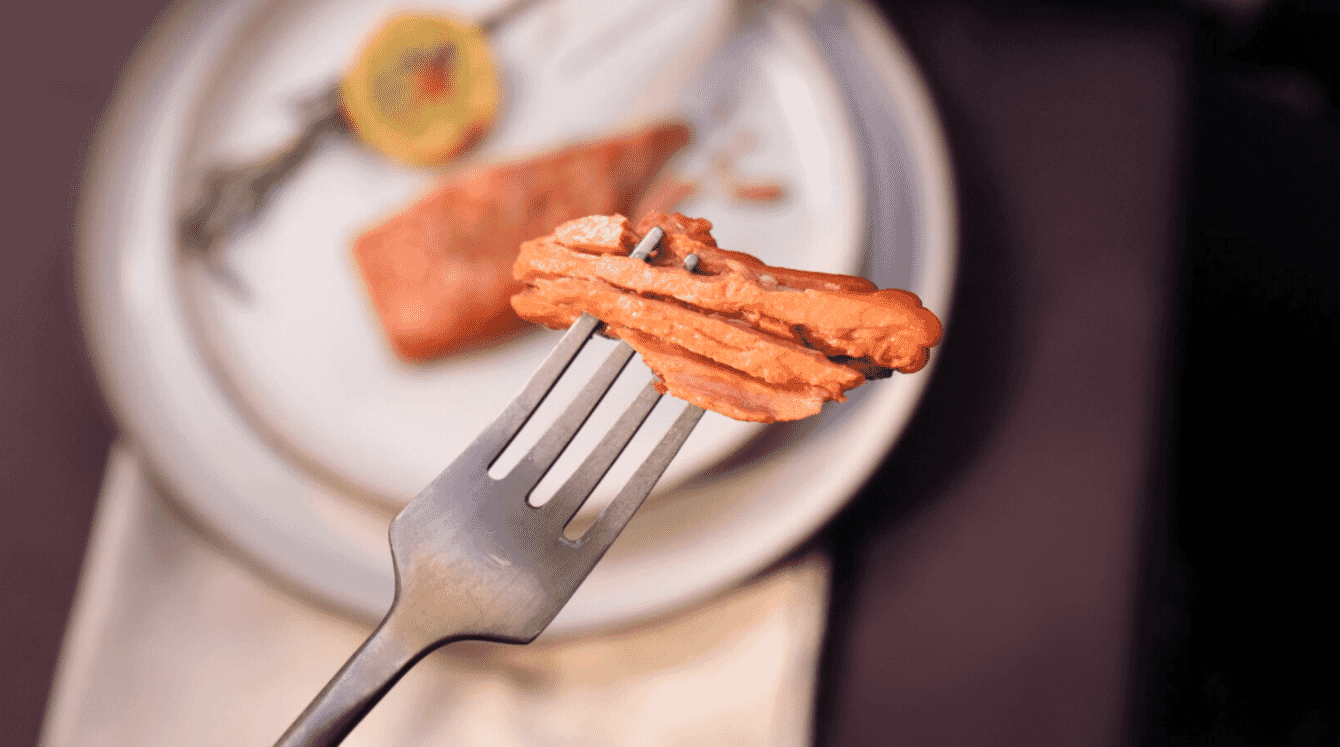
The Belgian and Austrian startups hope their technologies can complement each other to create a product that looks, smells and tastes like authentic salmon © Paleo
The project, which will run for two years, aims to develop myoglobin designed to mimic salmon and integrate it into the recipe for Revo Foods’ 3D structured vegan salmon fillet alternative. With 3D structuring technology, multiple materials can be integrated into each other, such as fats into a protein component (like the white stripes in a fillet). According to Revo Foods its alternatives can save up to 90 percent of fresh water and 75 percent of CO2 compared to conventional fish products,
Thanks to the funding Paleo and Revo Foods will partner to develop sustainable and high-quality alternatives. Paleo produces myoglobin, a heme protein, which is crucial for the authentic taste and nutritional value of meat. Originally found in animal muscle tissue, it can be produced through fermentation processes. These proteins give many types of fish and meat their characteristic taste, colour, iron-rich content and the typical aroma when cooking and roasting.
The new project aims to incorporate Paleo’s myoglobin into Revo Foods’ vegan salmon recipe. According to the startups this “will make the appearance of the vegan salmon fillet even more similar to conventional salmon, the taste more authentic, and will improve the nutritional value, particularly the iron and protein content”.
Using myoglobin from precision fermentation can further reduce the ecological footprint and make a significant contribution to environmental protection, while Revo Foods in-house developed 3D structuring technology enables efficient integration of myoglobin into food products.




